It contains materials which are removed from the top soil. Decomposition of Parent Material.
Easily weatherable minerals have been decomposed for the greater part.

. It is on this layer that plants and crops grow. These processes will transform that boulder into particles of sands silt and clays. The Forming Stage mainly characterized by team orientation.
Second Stage Lignite. The process of soil formation is called Pedogenesis. This layer lies below the sub soil.
The document has moved here. In this article we will discuss about- 1. R relief or topography p parent material.
Time is perhaps the most important factor when it comes to soil formation. Then the freezing and thawing of the water captured inside the rocks creates cracks inside the rocks. This layer lies below the top soil.
First Stage Peat. 1 Addition of mineral and organic matter to the soil. Plants animals micro-organisms and humans affect soil formation.
Everything takes a very long time indeed. 3 Translocation of mineral and organic matter from one point of soil profile and deposited at another horizon. Denudation is the abrasion of present rock material by the action of ice water or wind.
What soil looks like depends on the location that it forms in. It can take over 500 years to form an inch of topsoil on the surface. Terms in this set 6 The rock weathers.
It is an organic substance which is formed due to the partial decomposition of dead matter. Soil formation can be a dry topic for students in science classes. Animals and micro-organisms mix soils and form burrows and pores.
Types of Soils Triangle. Soil Formation Surface And Groundwater Weathering and Soils. Stages of Soil Formation.
Soil and soil formation can. Geological cycle has four cyclic steps. The evolution of soils and their properties is called soil formation and pedologists have identified five fundamental soil formation processes that influence soil properties.
Soil formation is a process strongly driven by the boundary conditions. The conversion of parent material into soil is known as soil formation. The soil formation process depends upon the presence of new soil material which is either acquired by denudation or deposition.
Mohr and Van Barren have recognized five stages in the development of soils in relation to time. The whole soil from the surface to its lowest depths develops naturally as a result of these five factors. Plant roots open channels in the soils.
2 Losses of mineral and organic matter from soil. This is the second stage in the coal formation. Soils are formed by disintegration and decomposition of rocks and vegetables and animal fossils imbedded in them.
This is the first stage in the formation of coal. Rainwater sips in rocks and the fluctuation in temperature causes differential expansion and contraction of the rocks. As water seeps downwards it breaks down the material.
Both mechanical and chemical weathering play an important role in soil formation. The formation of true soil from Regolith The evolution of true soil from regolith takes place by the combined action of. Different types of roots have different effects on soils.
The fundamental process of soil formation are the following. Making the lesson hands-on is an important step in helping students understand the many processes that go on. The Performing Stage mainly characterized by overall synergy.
This water seepage is what dissolves rocks into soil. Soil Forming Process 3. The plants begin to grow.
It is in first stage of soil formation. The weathering of rock R into Regolith 2. The partial decomposition is due to the accumulation of the matter underwater which cuts off the oxygen supply.
Soil formation is due to the percolation of water and weathering. The five factors are. This lesson is split into three different PowerPoint presentations based on different topics.
Topography which modifies the water relationship in soils and to a considerable extent influences soil erosion is usually treated as a soil former. Weathering just started but much of the original material is still un-weathered. It contains fine particles and organic matter.
Deposition is the accumulation of new materials that have been eroded from another place such as river gravels or blown gravel or the creation of new rocks. He left the in case there were other factors that he had not considered at the time. The soil formation process begins with a parent material that determines the mineral composition and widely contributes to the chemical and physical properties of the soil.
S soil formation. There are several ways or mechanisms involved in soil formation. Pedogenesis is a cyclic phenomenon called geological cycle.
The Norming Stage mainly characterized by cooperation integration and unity. Stages of Soil Formation 2. As stated at the beginning of this article soils evolve under the action of biological climatic geologic and topographic influences.
Animals such as insects and worms start to appear. This is the outer thin layer. The Storming Stage mainly characterized by a power struggle.
Soil Formation Processes details how new soil can appear in a new location and how soil looks change over time. If a single parent material is exposed to different climates then a different soil individual will form. 1 parent material 2 relief or topography 3 organisms including humans 4 climate and 5 time.
A fourth factor of soil formation is the configuration of the landscape. Grass roots are fibrous near the soil surface and easily decompose adding organic matter. Ie the topography of the.
Stages of Soil Formation. Soil formation factors and processes The soil formation is the process of two consecutive stages. Soil broadly consists of four layers.

How Is Soil Formed From Parent Material Quora

Soil Formation 5 Soil Factors Part 1 Youtube

Explain The Different Stages Of Soil Formation Brainly In
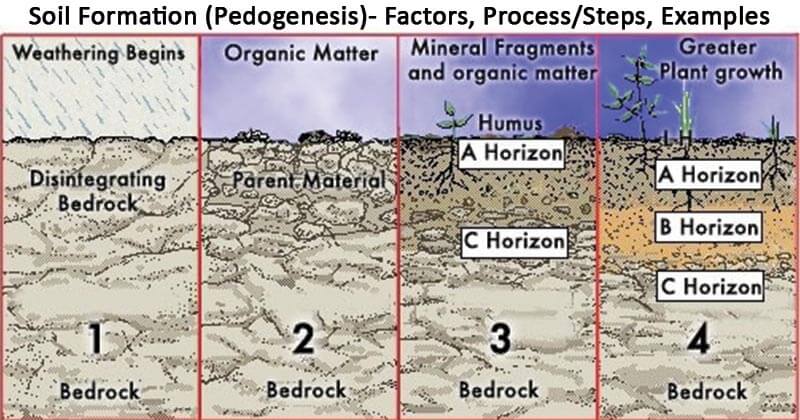
Soil Formation Pedogenesis Factors Process Steps Examples
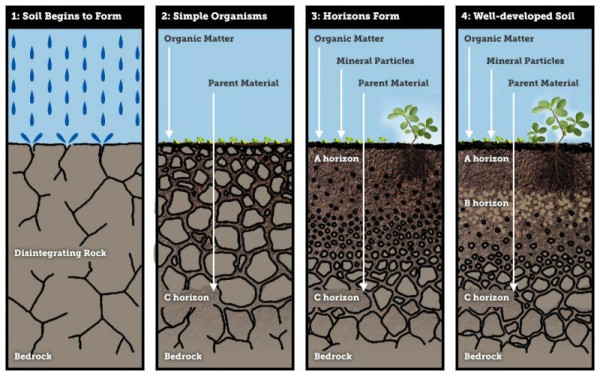
How Do Soils Form New Zealand Soils Portal Manaaki Whenua Landcare Research
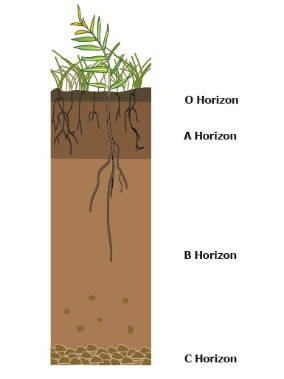
How Soils Form Environment Land And Water Queensland Government
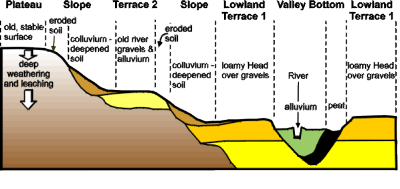
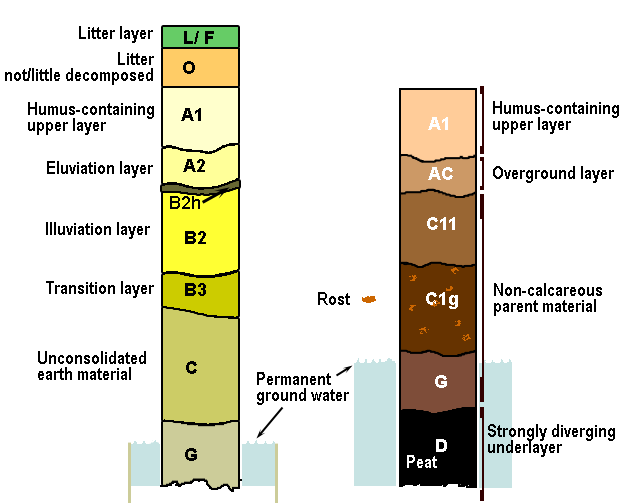
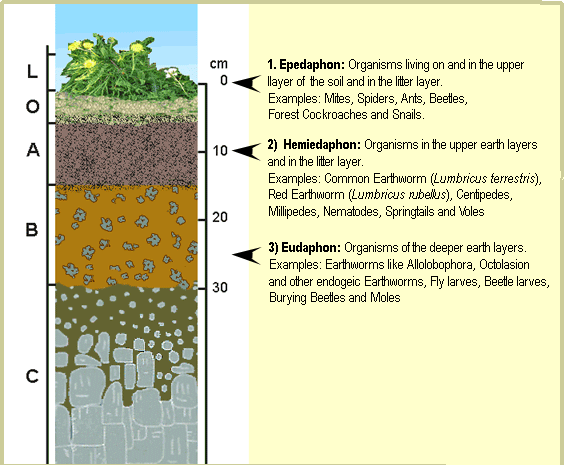
0 Comments